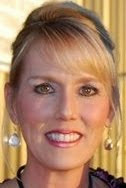 After attending a technology leadership academy with Patsy Lanclos, I've been pondering how Web 2.0 could help school administrators. I'm a former district administrator and my husband is a campus administrator. Here are a few Web 2.0 ideas that may help administrators be more productive.
After attending a technology leadership academy with Patsy Lanclos, I've been pondering how Web 2.0 could help school administrators. I'm a former district administrator and my husband is a campus administrator. Here are a few Web 2.0 ideas that may help administrators be more productive.1. Wikis - Wikis are a great way to collaborate with others. I have used wikis to conduct online book studies and to collaborate on group projects while taking graduate technology courses.
2. Blogging - Blogs help us reflect with other administrators, educators, and/or community members. If you use Blogger, you may want to remove the Navbar so that the "Next Blog" feature does not appear since there are many inappropriate posts on Blogger that you don't want people to have access to via your blog.
3. Google docs, ZOHO, box.net - great ways of working collaboratively with others by sharing documents. Google docs has many templates to choose from or you can create your own. ZOHO has a large suite of productivity and collaboration applications. Box.net provides free online file storage that you can share with others.
4. Google calendar - My family shares information about our schedules using Google Calendar.
5. RSS feeds - I use Google Reader to get the news and blog posts I want in one place.
6. Podcasts- Record weekly/monthly superintendent or campus principal messages, messages to new substitutes on your campus, messages to parents and student, etc. Employees or community members can listen to your podcast on their computers or iPods.
7. Skype - free computer-to-computer calls can be used to interview applicants who for whatever reason are not able to meet face-to-face on the day of the interview. For example, I know of a district administrator who interviewed an applicant using Skype because the out-of- town applicant was committed to presenting staff development in her current district.





